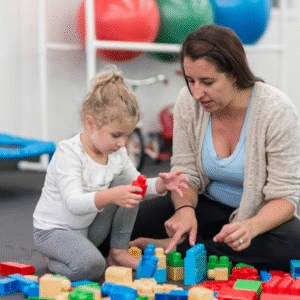Helping children grow into confident and independent individuals is one of the most rewarding parts of parenting. Every child has unique strengths, but sometimes they need extra support to unlock their potential. This is where paediatric occupational therapy can play an essential role, offering tools and strategies that encourage children to become more self-reliant and self-assured. By focusing on small, achievable steps, parents and caregivers can nurture a child’s confidence and independence in everyday life.
1. Encourage Decision-Making Early On
One of the most effective ways to boost your child’s confidence is to allow them to make choices from an early age. Simple decisions, such as selecting their outfit or choosing a snack, give children a sense of control. This not only helps them develop independence but also builds problem-solving and critical-thinking skills.
Encouraging decision-making helps children understand that their opinions matter. As they grow, offering more complex options—like choosing extracurricular activities or planning weekend family outings—strengthens their ability to evaluate situations and take responsibility for their decisions. This empowerment builds inner confidence and reduces anxiety about making mistakes.
2. Celebrate Effort, Not Just Success
Confidence grows when children feel valued for their efforts, not just for achieving perfection. Instead of focusing solely on results, recognise the hard work and persistence they put into tasks. Whether they’re learning to tie their shoelaces or improving handwriting, every step forward deserves praise.
When you focus on effort, children learn that mistakes are part of learning. This mindset encourages resilience—the ability to bounce back after challenges. It also teaches them that progress matters more than perfection, which helps them stay motivated even when things don’t go as planned.
A simple yet powerful phrase like “I’m proud of how hard you tried” can go a long way in boosting a child’s self-esteem and encouraging continuous growth.
3. Promote Daily Routines and Responsibility
Routines are the backbone of independence. Establishing consistent daily routines helps children understand expectations and builds a sense of stability. When children know what to do and when to do it, they develop organisational and time management skills that contribute to self-confidence.
Start by involving them in small household tasks such as setting the table, feeding pets, or packing their school bag. These age-appropriate responsibilities not only build independence but also help children feel capable and trusted.
A child who knows they can manage simple routines independently is more likely to take initiative in other areas of life. Over time, this sense of accomplishment strengthens their belief in their abilities and reduces reliance on adults.
4. Foster Emotional Awareness and Self-Regulation
Understanding emotions is a cornerstone of confidence and independence. Children who can identify, express, and manage their feelings are better equipped to handle life’s ups and downs. Teaching emotional awareness begins with helping children label their emotions—such as happy, sad, frustrated, or proud.
You can model emotional regulation by discussing how you manage stress or disappointment in daily life. Activities like deep breathing, mindfulness, or journaling can also help children develop calm and focus.
In many cases, structured support such as paediatric occupational therapy may assist children in improving emotional regulation and coping strategies. This kind of guidance can empower children to face challenges with a positive mindset, fostering resilience and self-belief.
5. Encourage Play and Skill-Building Activities
Play is a powerful tool for building confidence and independence. Through play, children explore new challenges, test boundaries, and discover their strengths. Activities that promote fine motor skills—such as drawing, building blocks, or dressing independently—help children develop coordination and control.
Outdoor play, on the other hand, enhances gross motor skills and social confidence. When children climb, run, or play team games, they learn to cooperate, communicate, and problem-solve—all essential skills for growing independence.
Parents can also create opportunities for children to take the lead during playtime. Let them make rules for a game or direct a family activity. This boosts leadership skills and shows them that their ideas are valued, reinforcing self-confidence and creativity.
Building Confidence Through Connection
Confidence doesn’t grow in isolation—it flourishes through connection. When children feel supported by the people around them, they gain the courage to take risks and try new things. Positive reinforcement from parents, teachers, and peers plays a key role in nurturing self-esteem.
Open communication, empathy, and active listening help children feel heard and understood. When they trust that their feelings matter, they become more open to expressing themselves and facing challenges head-on.
Final Thought
Building confidence and independence in children is a gradual process that requires patience, consistency, and encouragement. By allowing kids to make decisions, celebrating their efforts, creating structured routines, teaching emotional regulation, and supporting learning through play, parents lay a strong foundation for lifelong resilience and self-belief.
Every small victory matters. With time and the proper guidance, children learn that they are capable, resourceful, and ready to take on the world with confidence. Whether through everyday interactions or professional support like paediatric occupational therapy, fostering independence helps children grow into empowered, capable individuals ready to embrace their full potential. Learn More!





